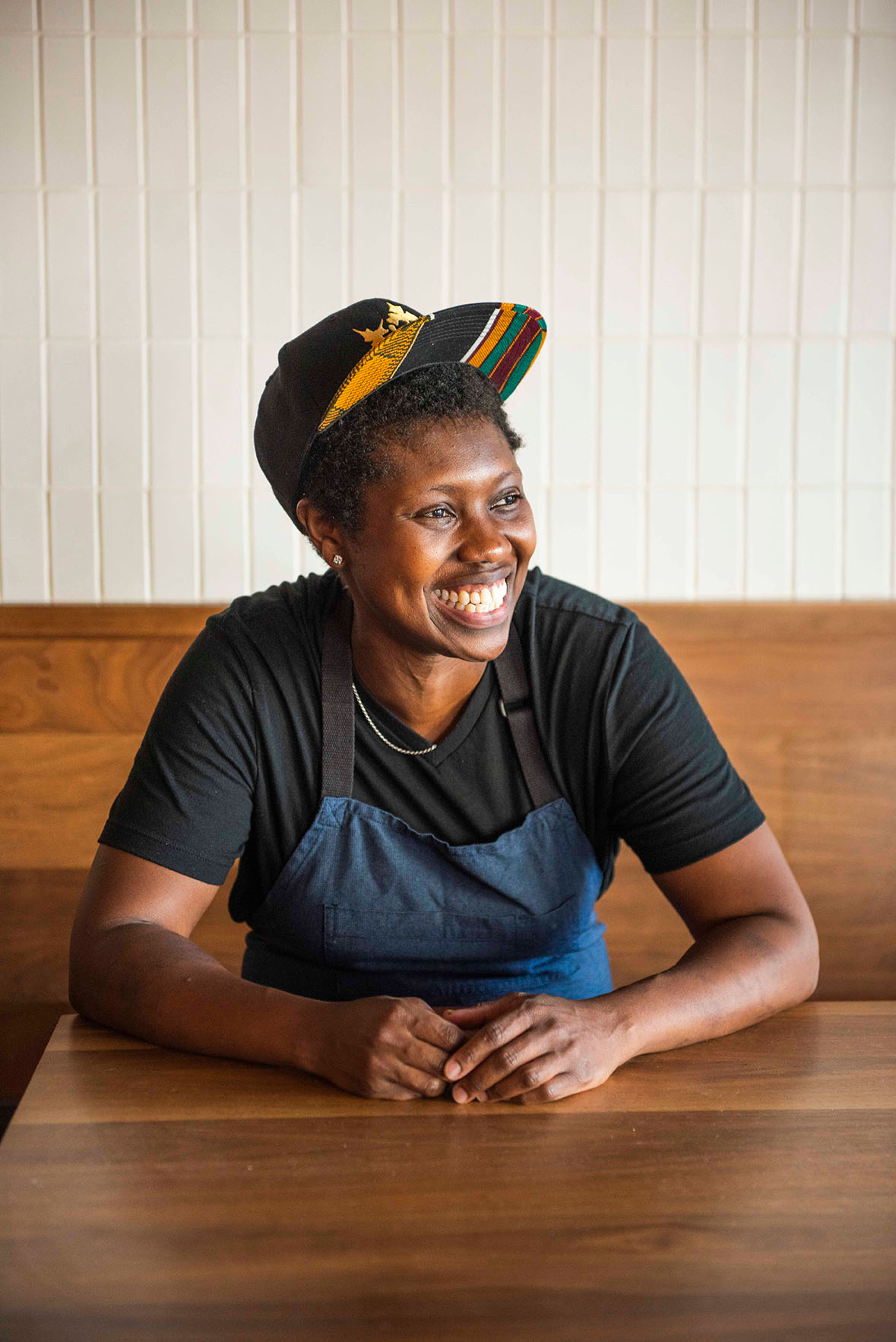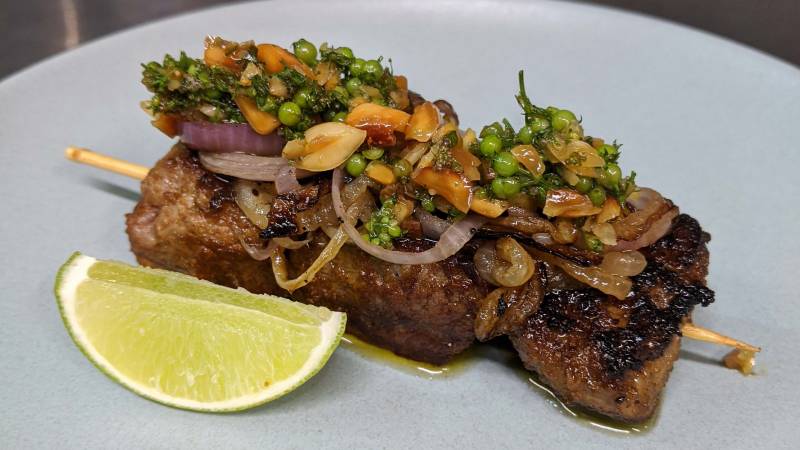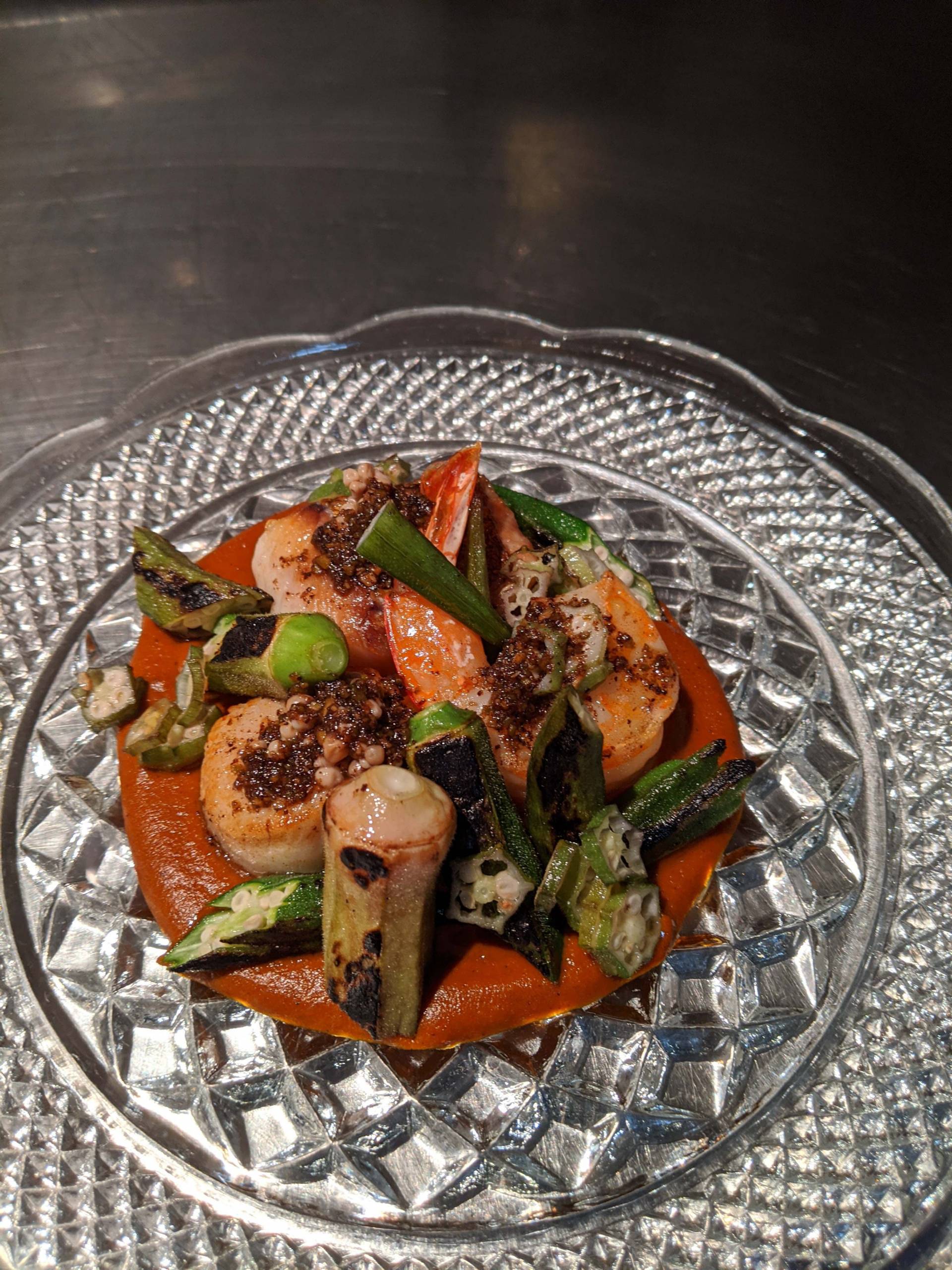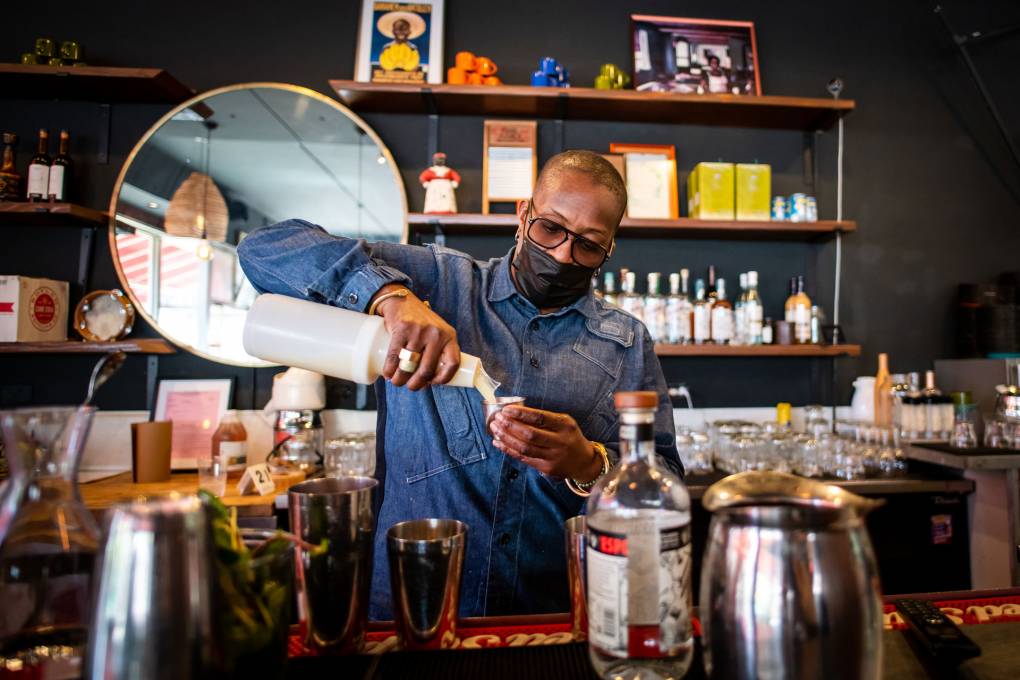For the past several years, Selasie Dotse has worked at acclaimed fine dining restaurants like Lazy Bear, Avery, SPQR—a parade of Bay Area Michelin star contenders. Most of the time, she’s been the only Black chef in the kitchen. The only Black woman. The only African.
And so it has been both a challenge—and a personal mission—for Dotse to carve out a space for herself and for other Black folks who aspire to make a name for themselves in this most rarefied sector of the dining scene.

“The goal is just to be like, ‘We’re here,’ Dotse says. “I want to find ways to let the Bay Area know that there are Black chefs, that there are African chefs. It’s not all white chefs doing Asian techniques.”
Part of how she’s done that? Through pop-ups. This Sunday, May 29, she’ll launch her latest, Elade Test Kitchen, a culinary exploration of Dotse’s own Ghanaian heritage, but done through the lens of modern fine dining techniques and presentation. As such, it’ll almost certainly be a meal unlike any that most diners will have ever experienced. The dinner is part of the Sunday Supper series at Copas, the Northern California-inflected Spanish-Mexican restaurant on Market Street in San Francisco, where Dotse is the sous chef and pastry chef.
For this weekend’s pop-up, Dotse plans to take the handful of West African dishes that diners may have experienced—suya, jollof rice and plantains—and remix them in new and exciting ways. So, she’ll do a version of jollof rice, that savory, tomato-tinged staple. But she’s going to make it with rice grits (cooked pieces of broken rice) and then serve it stuffed inside a fried chicken wing glazed with shitor, an umami-packed Ghanaian chile sauce that she makes from scratch. (“It’s one of the best hot sauces, in my opinion,” Dotse says.)






